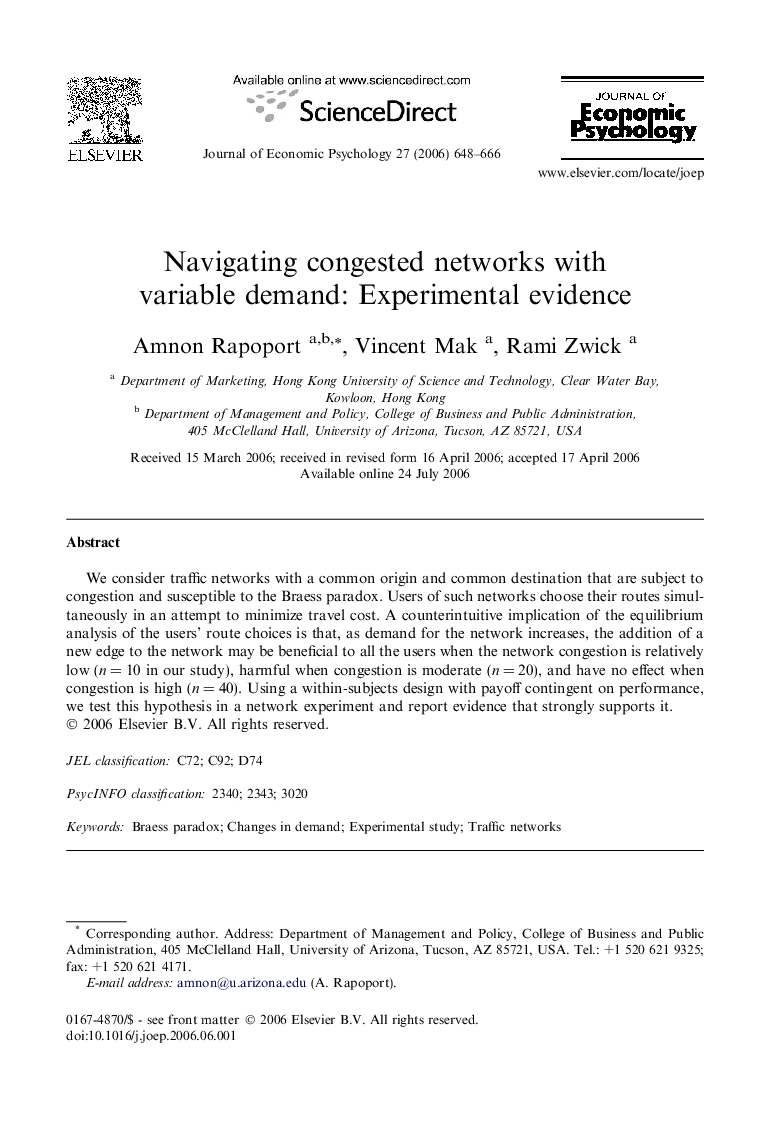| Article ID | Journal | Published Year | Pages | File Type |
|---|---|---|---|---|
| 885448 | Journal of Economic Psychology | 2006 | 19 Pages |
We consider traffic networks with a common origin and common destination that are subject to congestion and susceptible to the Braess paradox. Users of such networks choose their routes simultaneously in an attempt to minimize travel cost. A counterintuitive implication of the equilibrium analysis of the users’ route choices is that, as demand for the network increases, the addition of a new edge to the network may be beneficial to all the users when the network congestion is relatively low (n = 10 in our study), harmful when congestion is moderate (n = 20), and have no effect when congestion is high (n = 40). Using a within-subjects design with payoff contingent on performance, we test this hypothesis in a network experiment and report evidence that strongly supports it.
